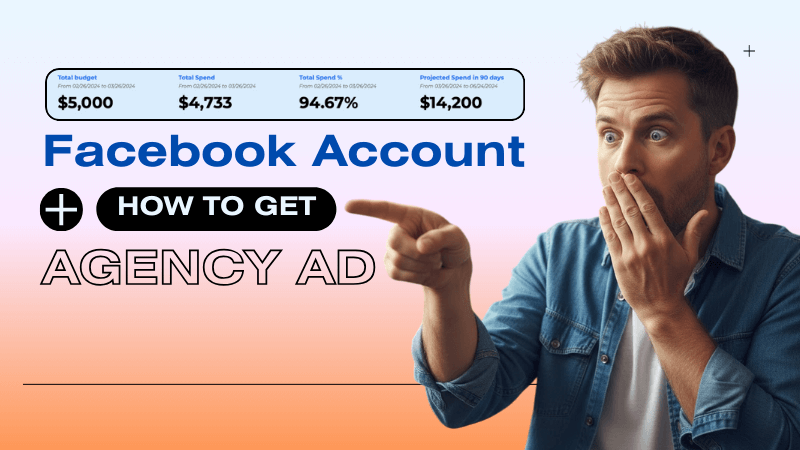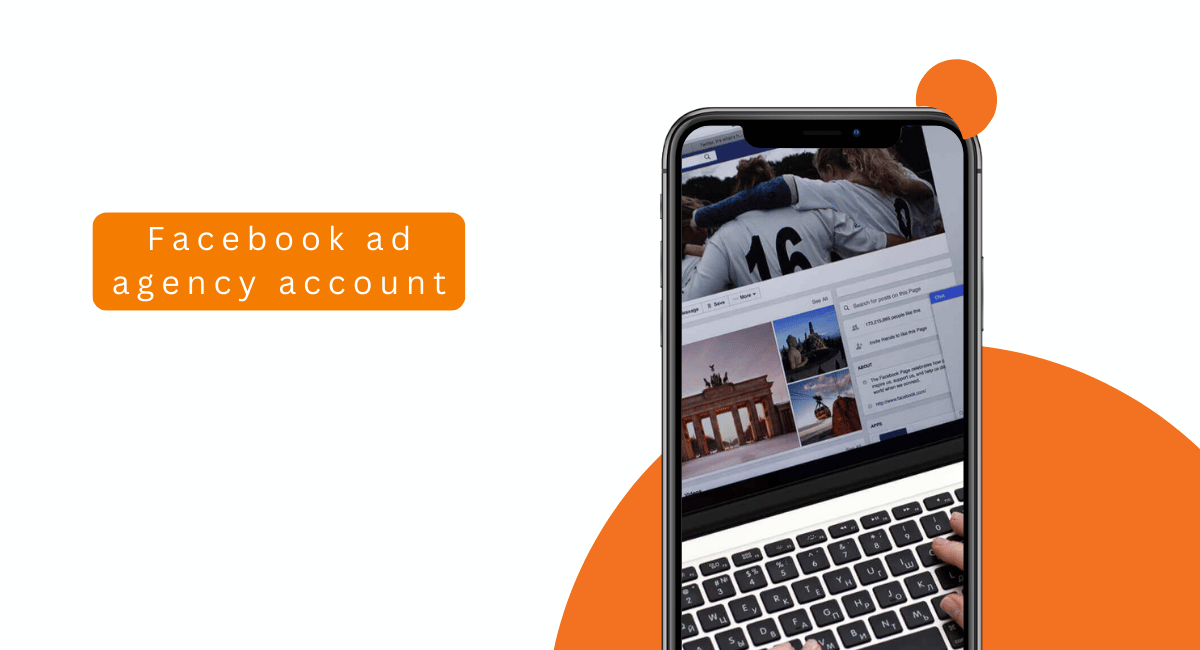Post map
ToggleOne of the important metrics that helps marketers measure the effectiveness of PPC campaigns is CPC. Based on this metric, advertisers can determine how much they need to pay for ads on search engines and social media platforms. Only by understanding CPC can you manage your budget effectively and ensure that your advertising campaigns achieve optimal performance. So, what is CPC? How important is it, and how can you optimize this metric? Please refer to the article below by Soc Lua Agency for more details!
What is CPC?
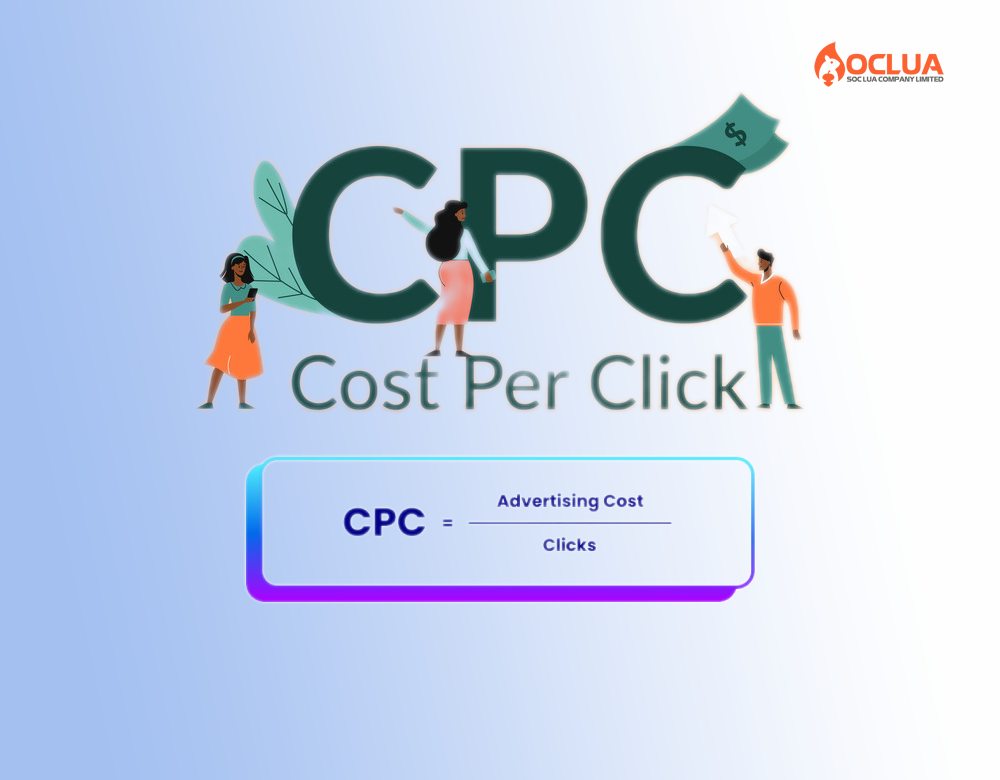
CPC stands for Cost Per Click, a form of advertising cost based on the number of clicks on an ad. Based on the Cost Click metric, marketers can determine how much they need to pay for ads on platforms like Google Ads, Facebook Ads,...
The CPC metric helps marketers assess the effectiveness of paid advertising campaigns applied to all types of ads, from text, and images to videos. Moreover, CPC is applied to ads appearing on search engine result pages, display ads, and ads on social media platforms.
Unlike CPM, which charges based on the number of impressions, CPC is calculated based on the actual number of clicks on the ads that a business receives. Therefore, CPC helps measure the cost for businesses to reach people who are interested in their products or services. The lower the CPC, the more optimized the advertising cost, leading to higher profits.
CPC is calculated based on the number of clicks on the ad, which brings profit for the business. This is because businesses can get multiple impressions for free before being charged. Many businesses favor the CPC pricing model because it saves costs and targets the right potential customers, increasing ad effectiveness.
Using CPC is an effective way to determine the value of an advertising campaign relative to the total money spent. Each click on the ad counts as a visit to the website. The more clicks, the more people are interested in the ad. CPC is especially useful in Sponsored Products campaigns as it helps you find the accurate bid for specific keywords.
The most accurate way to calculate CPC
Understanding what CPC is and how to calculate this index will help you control your budget and optimize campaign performance. The general formula for calculating CPC is:
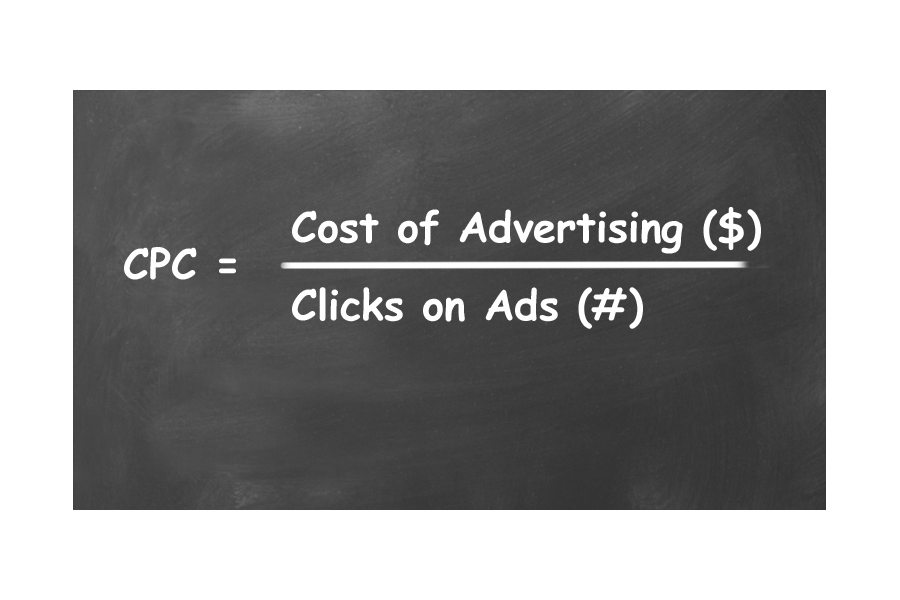
CPC (currency) = Total advertising cost / Number of clicks
In which, Total advertising cost is the total budget you have spent on a specific advertising campaign on Google Ads, Facebook Ads in a certain period of time. Number of clicks is the total number of times users on the platform click on the ad.
However, the CPC formula is not fixed but depends on many factors, especially from advertising platforms such as Google Ads, Facebook Ads, ... Google Ads uses a complex algorithm to determine CPC based on many factors, so the calculation will be different. Specifically, please refer to the following formula:
Cost per click (CPC) = ( Landing Page Quality Score x Ad Quality Score x Ad Click-Through Rate (CTR) / Search Rank
- CPC is the cost per click on an ad.
- Ad Quality Score is the system's assessment of the relevance and attractiveness of an ad compared to the keyword and target audience.
- The landing Page Quality Score represents the relevance and quality of the page that users are transferred to after clicking on an ad.
- CTR is the percentage of users who have viewed and clicked on an ad.
- Rank is the position of the ad in the search list or feed compared to other ads.
In addition, CPC is also calculated according to the following formula: CPC = (Competitor AdRank / Your Quality Score) + 0.1
Which Competitor Adrank is the ad rank and the higher the rank, the higher the cost and the higher the ability to reach the target audience. Your Quality Score is the score High quality price is inversely proportional to CPC.
The role of CPC in advertising
The importance of CPC in managing and optimizing budgets for PPC campaigns can be seen in the following ways:
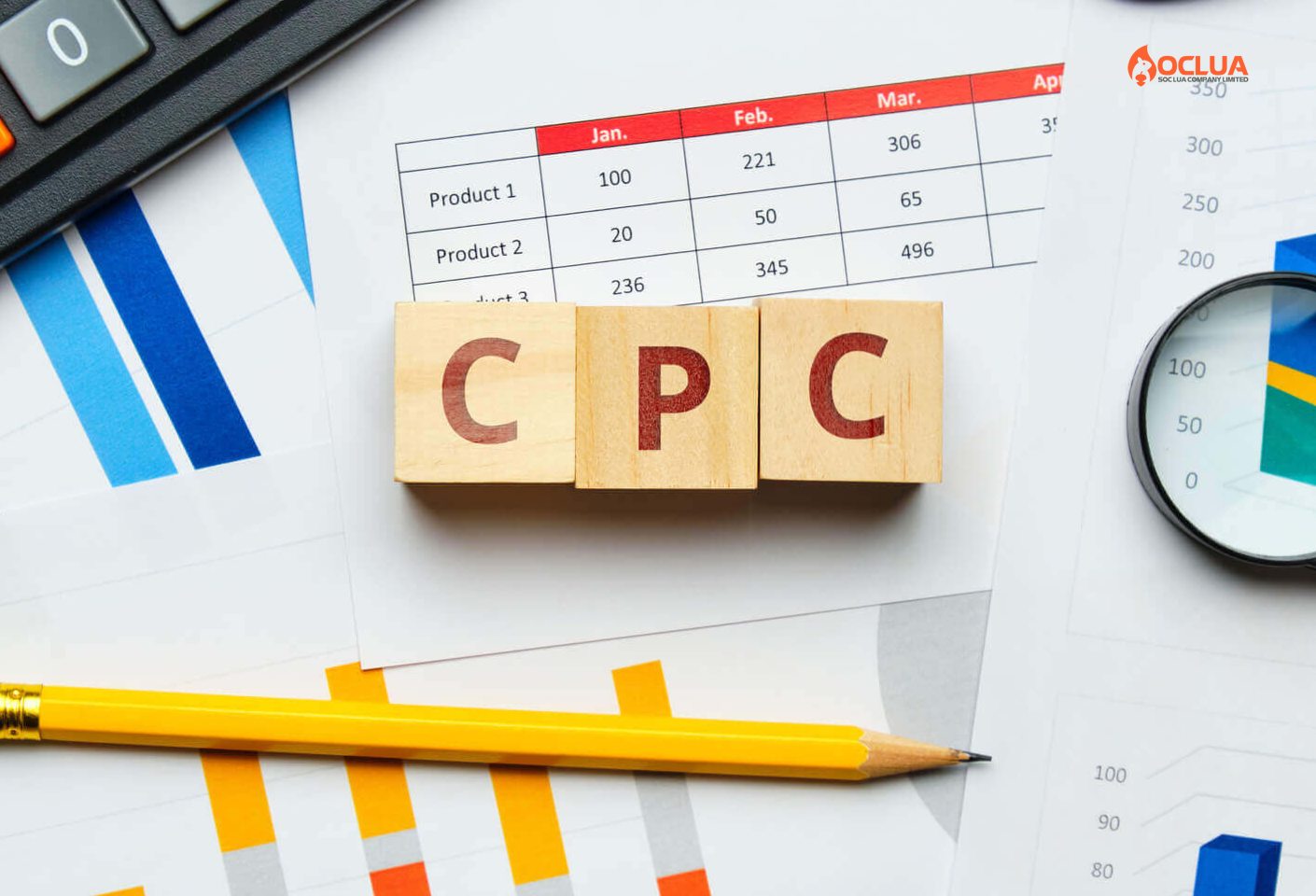
Increase Conversion Rates
Unlike impressions, measuring the number of clicks shows the level of user interaction. This is a good indicator of intent that can lead to conversion in the next stage. When CPC is optimized, it not only increases website traffic but also improves the conversion rate of potential customers into actual customers.
Easily Measuring Campaign Performance
Through the CPC metric, you can evaluate the cost per click to understand how much you are paying to attract customer attention. Based on this metric, businesses can identify the number of clicks on their ads and calculate the costs. Advertisers can adjust strategies to achieve the best results.
Controlling and Managing Budget
The CPC model is effective because you only pay for clicks on the ad. Businesses can reach users who have shown interest in the products or services. Additionally, you can control costs effectively by setting daily limits to avoid exceeding the established budget.
Maximizing ROI
With CPC ads, you can determine if the value received corresponds to the amount spent. Once you understand the cost per click, you can allocate your budget efficiently, maximize the number of clicks, adjust bids, and enhance ROI. This ensures your profits and stable returns from investments in advertising and marketing campaigns.
How to Optimize CPC in Advertising
By understanding the importance of CPC and how to calculate this metric, businesses can control and improve the effectiveness of their advertising and marketing campaigns. Below are some strategies to effectively optimize CPC costs in advertising:
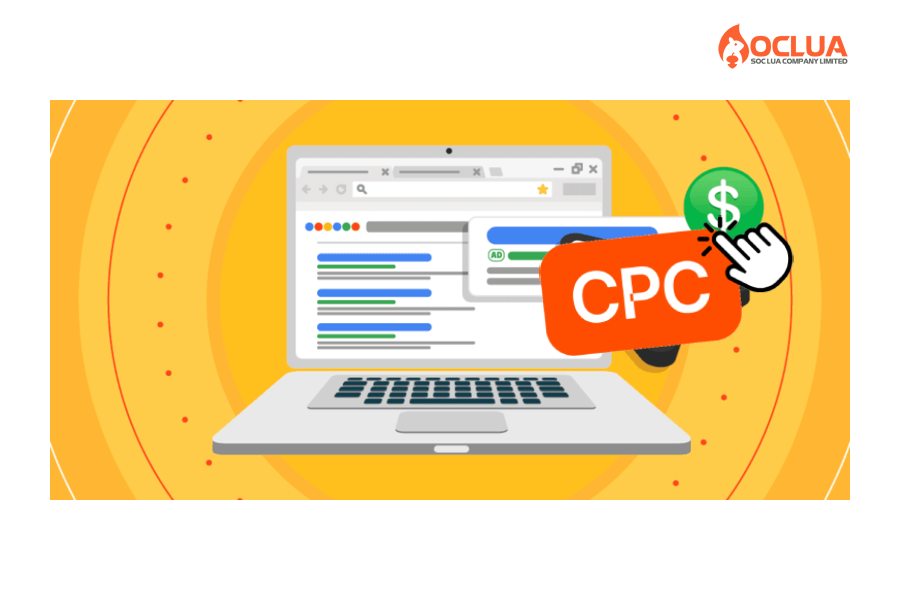
Optimize Ad Quality Score
The quality score is rated on a scale of 1 to 10; the higher the quality score, the higher the ad rank and the lower the CPC. To improve the quality score and optimize CPC, create ad copies that are visually appealing and relevant to the user’s search intent. Enhance the landing page experience to match the target audience who click on the ad. Make sure the ad is more attractive to the target customer group.
Conduct Thorough Keyword Research
To reach the right target audience, you need to build a keyword list that has a high conversion rate. Ensure that the chosen keywords appear or are relevant in the ad copy to increase the chances of customers clicking on the ad. If you want to optimize keywords for your advertising campaign, choose long-tail keywords combined with negative keywords to prevent irrelevant clicks. Use a combination of keyword match types like broad match, phrase match, and exact match to balance costs and increase the reach to the target audience.
Choose the Right Bidding Strategy
Bidding is one of the key factors determining the success of an advertising and marketing campaign. There are two types of bidding strategies: manual bidding and automated bidding. With manual bidding, you have control over adjusting the bids based on the budget and the performance of each keyword, while easily tracking and analyzing the ad cost per click. Automated bidding strategies offer convenience, especially for those who are less experienced with running Google Ads or Facebook Ads campaigns. The advertising system automatically adjusts the bids based on algorithms and historical data to achieve the set campaign goals, such as optimizing conversions or increasing engagement.
Optimize Content and Images
Optimizing content and images on both the landing page and the ad not only improves search rankings but also increases conversion rates. Ensure that the content and images in the ad match those on the landing page. For the content, create compelling headlines, structure the layout appropriately, and incorporate main and related keywords into the copy.
Craft concise and attractive copy that provides valuable information to the customer. As for the images in the ad and on the landing page, make sure they are high-quality, relevant to the content, and optimized for SEO with JPG format and a minimum size of 800 pixels.
Monitor and Adjust Campaigns
Analyzing CPC is a necessary action to improve the effectiveness of advertising activities. This cost can change over time, so it's important to regularly check and compare. Based on this data, make timely adjustments to optimize the budget and minimize costs. Regularly monitor, measure, and conduct A/B testing to identify underperforming ads or campaigns to eliminate them. This will not only help optimize the budget but also increase effectiveness.
By reviewing the information shared above, you can gain a clearer understanding of what CPC is. By learning about this metric, as well as how to measure and optimize it, you can maintain tight budget control and improve effectiveness in reaching your target audience.
Frequently Asked Questions
The answer is yes. CPC indirectly affects the click-through rate (CTR). The increase in CPC varies depending on the level of competition in each industry. When an ad is attractive and designed to suit the target audience, it will lead to an increase in click-through rate. If the quality score of the ad is improved, it will lead to a high CTR and a decrease in CPC. This is the reward that Google gives to high-quality ads by allowing them to achieve the best positions at low bids. The quality score of the ad is calculated based on the relevance of the ad, the expected click-through rate, and the improvement of the landing page experience.
If PPC is a form of paid advertising in which advertisers will pay for advertising types such as Google Ads, Facebook Ads when users click on their ads. CPC is a form of advertising payment in which advertisers will pay for advertising campaigns when people click on the ads. Based on CPC, businesses can evaluate the effectiveness of PPC campaigns.

